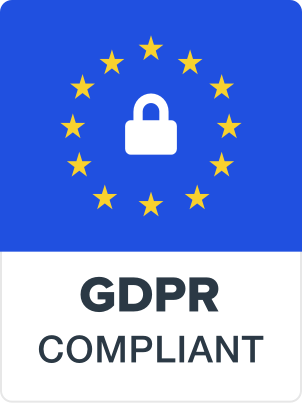Transforming Auditing Processes: The Power of Digital Audit and Workflow Monitoring Systems

February 15 , 2024
In today’s fast-paced digital era, traditional auditing methods no longer suffice. As businesses embrace technological advancements, the need for efficient and effective auditing solutions has become imperative. Enter the world of digital audit and workflow monitoring systems—a revolutionary approach to auditing that leverages technology to streamline processes and enhance overall efficiency. This weblog explores the significance and benefits of auditing apps, specifically digital audit and workflow monitoring systems, in transforming traditional auditing practices.
- The Rise of Auditing Apps
Due to their capacity to automate and simplify challenging auditing procedures, auditing applications have greatly increased in popularity in recent years. Compared to manual approaches, digital audit solutions have a number of benefits, such as greater accuracy, real-time data processing, and enhanced client and auditor communication.
The capacity of auditing applications to centralize data, making it conveniently accessible and lowering the possibility of data loss or duplication, is one of its primary strengths. Auditors may safely store and retrieve data using a digital audit system, guaranteeing that data is available for quick analysis and evaluation. As a result, there is no longer a need for large physical files, and the auditing process is more effective overall.
Moreover, digital audit systems employ advanced data analytics techniques to identify patterns, anomalies, and trends in large datasets. This enables auditors to identify potential risks and areas for improvement more effectively. By automating data analysis, auditing apps save valuable time and allow auditors to focus on critical issues and strategic decision-making.
- Streamlining Workflows with Workflow Monitoring Systems
Workflow monitoring systems complement digital audit apps by providing a comprehensive solution for managing and monitoring the entire audit process. These systems enable auditors to track the progress of audits, assign tasks, and collaborate with team members seamlessly.
With workflow monitoring systems, auditors can create customized workflows that align with their organization’s specific requirements. These workflows outline the sequence of tasks, responsibilities, and deadlines, ensuring that all audit activities are performed in a systematic manner. By streamlining workflows, auditors can optimize resource allocation, reduce bottlenecks, and improve overall productivity.
Additionally, workflow monitoring systems enhance transparency and accountability within the audit team. Each team member can view the status of tasks, enabling effective coordination and facilitating prompt issue resolution. Moreover, auditors can easily identify any delays or roadblocks in the audit process and take proactive measures to address them.
Additionally, real-time reporting and analytics features provided by process monitoring systems enable auditors to produce detailed reports and monitor key performance indicators (KPIs). These insights allow auditors to evaluate the success of their audit techniques, track the progress of their audits, and pinpoint areas for improvement.
- The Benefits and Future of Digital Audit and Workflow Monitoring Systems
The advantages of digital audit and workflow monitoring systems are vast and impactful. By embracing these technologies, businesses can experience improved accuracy, increased productivity, enhanced collaboration, and reduced audit turnaround time. According to Statista Intelligent workflow is the merger of human and machine algorithm to solve complex problems. Data and information as raw materials fuel the intelligent workflow, enabling both machine learning programs and the humans working with them to improve their capabilities and capacity at work. Companies utilizing intelligent workflow found that embedded technology was optimizing productivity. By contrast, using internet of things (IoT) and edge technology barely improved real-time decisions and actions.
Digital audit apps and workflow monitoring systems also contribute to better risk management. With real-time data analysis and monitoring capabilities, auditors can identify potential risks and fraud indicators more efficiently, enabling organizations to take proactive measures to mitigate these risks.
Looking ahead, the future of digital audit and workflow monitoring systems appears promising. As technology continues to advance, we can expect more sophisticated features, such as artificial intelligence (AI) and machine learning (ML), to be integrated into these systems. AI-powered algorithms can further enhance data analysis capabilities, while ML algorithms can learn from past audit experiences to provide valuable insights and recommendations.
Uses of Digital Audit and Workflow Monitoring Systems across Industries

Digital audit and workflow monitoring systems are not limited to a specific industry. These versatile tools can be applied across various sectors, revolutionizing auditing processes and improving efficiency. Let’s explore some of the key industries that can benefit from the implementation of these services.
- Financial Services Industry
The financial services industry places a premium on accuracy, compliance, and risk management. A reliable foundation is offered by digital audit and process monitoring systems for performing audits in banking, insurance, and investing organizations. These technologies give auditors the ability to keep track of financial transactions, verify regulatory compliance, and spot possible fraud. These tools improve the speed and accuracy of audits by automating data processing and offering real-time insights, allowing financial institutions to make educated decisions.
- Healthcare Industry

To maintain patient safety and data security, the healthcare business is heavily regulated and necessitates careful auditing procedures. By enabling compliance audits, maintaining patient information, and keeping tabs on medical billing procedures, digital audit and workflow monitoring systems are essential in this industry. These solutions simplify auditing tasks, cut down on mistakes, and raise the general standard of healthcare services. Additionally, auditors can spot opportunities for cost optimization, spot possible billing fraud, and boost operational effectiveness by utilizing data analytics skills.
- Manufacturing Industry
In the industrial sector, effective quality control and supply chain management are crucial. Systems for digital auditing and workflow monitoring make it easier for auditors to keep track of inventories, monitor production processes, and verify that safety and quality criteria are being met. These solutions give auditors real-time view into the whole production operation, allowing them to locate bottlenecks, streamline procedures, and raise output levels. These systems improve quality control, decrease waste, and enable quick remedial action by automating data collecting and processing.
- Retail and E-commerce Industry
The retail and e-commerce sectors thrive on efficient inventory management, sales tracking, and customer satisfaction. Digital audit and workflow monitoring systems aid in conducting audits related to inventory management, sales reconciliation, and financial transactions. By automating data integration from various sales channels, these systems provide accurate insights into sales performance, inventory turnover, and profit margins. They also facilitate the detection of discrepancies, such as inventory shrinkage or revenue leakage, enabling auditors to take immediate corrective actions.
- Government and Public Sector
Digital audit and workflow monitoring systems have a significant impact on enhancing accountability and transparency in the government and public sector. These systems assist auditors in conducting compliance, financial, and performance audits of government organizations to ensure efficient use of tax dollars and conformity to rules. These technologies support the identification of opportunities for development, the reduction of inefficiencies, and the enhancement of governance standards by supplying real-time access to data and expediting audit procedures.
- Information Technology and Cybersecurity

Digital audit and workflow monitoring solutions are essential in the fast changing IT environment for assuring the security and integrity of IT systems and data. These platforms may be used by auditors to carry out IT compliance audits, vulnerability assessments, and cybersecurity audits. By monitoring system logs, network traffic, and user access, auditors can identify potential security breaches, unauthorized activities, and compliance violations. This proactive approach helps organizations strengthen their IT infrastructure, mitigate risks, and safeguard sensitive information.
- Energy and Utilities Industry
In the energy and utilities industry, where complex infrastructure and compliance requirements are prominent, digital audit and workflow monitoring systems prove to be invaluable. These technologies support auditors in managing asset maintenance, guaranteeing environmental compliance, and monitoring energy production and distribution. Auditor inefficiencies, energy usage trends, and resource allocation may all be tracked by gathering real-time data from sensors and equipment. This helps businesses to increase sustainability efforts, save operating expenses, and improve energy efficiency.
- Hospitality and Tourism Industry
The hospitality and tourism industry relies heavily on delivering exceptional customer experiences and maintaining high operational standards. Digital audit and workflow monitoring systems play a crucial role in conducting audits related to food safety, guest satisfaction, and compliance with industry regulations. These systems streamline auditing processes, enabling auditors to track cleanliness standards, monitor guest feedback, and ensure compliance with health and safety protocols. By automating data collection and analysis, auditors can identify areas for improvement, enhance service quality, and drive guest loyalty.
- Transportation and Logistics Industry

The transportation and logistics industry involves complex operations, supply chain management, and regulatory compliance. Digital audit and workflow monitoring systems are instrumental in conducting audits related to transportation safety, inventory management, and regulatory compliance. These systems enable auditors to monitor vehicle maintenance records, track shipments, and ensure compliance with transportation regulations. By automating audit processes and providing real-time insights, these systems improve operational efficiency, reduce transportation risks, and enhance customer satisfaction.
The implementation of digital audit and workflow monitoring systems extends beyond the mentioned industries, with applications in many other sectors. Energy and utilities, hospitality and tourism, and transportation and logistics industries benefit greatly from these systems by streamlining auditing processes, ensuring compliance, and optimizing operations. As organizations in diverse industries embrace digital transformation, the integration of these innovative technologies becomes crucial in enhancing productivity, mitigating risks, and driving overall business success.
Digital audit and workflow monitoring systems have a wide range of applications across industries, bringing efficiency, accuracy, and transparency to auditing processes. From financial services to healthcare, manufacturing to retail, and government to IT, these systems empower auditors to conduct audits effectively, streamline workflows, and improve decision-making. As industries continue to embrace digital transformation, the implementation of these services will be crucial in ensuring compliance, mitigating risks, and driving overall business success.
Conclusion
In conclusion, digital audit and workflow monitoring systems have revolutionized the auditing landscape. Numerous advantages are provided by these technologies, such as increased accuracy, increased production, and efficient risk management. Businesses may improve resource allocation, expedite audit procedures, and make data-driven choices by adopting these cutting-edge technologies. Organizations must embrace the revolutionary power of auditing applications, in particular digital audit and workflow monitoring tools, as the digital era develops if they want to stay ahead in the cutthroat corporate climate. Furthermore if you are looking for workflow monitoring system then get in touch with UrAudits.
Copyright © 2024 Uraudits.com. All Rights Reserved. Privacy Policy | Legal | Terms of Use
Privacy Overview
| Cookie | Duration | Description |
|---|---|---|
| cookielawinfo-checbox-analytics | 11 months | This cookie is set by GDPR Cookie Consent plugin. The cookie is used to store the user consent for the cookies in the category "Analytics". |
| cookielawinfo-checbox-functional | 11 months | The cookie is set by GDPR cookie consent to record the user consent for the cookies in the category "Functional". |
| cookielawinfo-checbox-others | 11 months | This cookie is set by GDPR Cookie Consent plugin. The cookie is used to store the user consent for the cookies in the category "Other. |
| cookielawinfo-checkbox-necessary | 11 months | This cookie is set by GDPR Cookie Consent plugin. The cookies is used to store the user consent for the cookies in the category "Necessary". |
| cookielawinfo-checkbox-performance | 11 months | This cookie is set by GDPR Cookie Consent plugin. The cookie is used to store the user consent for the cookies in the category "Performance". |
| viewed_cookie_policy | 11 months | The cookie is set by the GDPR Cookie Consent plugin and is used to store whether or not user has consented to the use of cookies. It does not store any personal data. |









